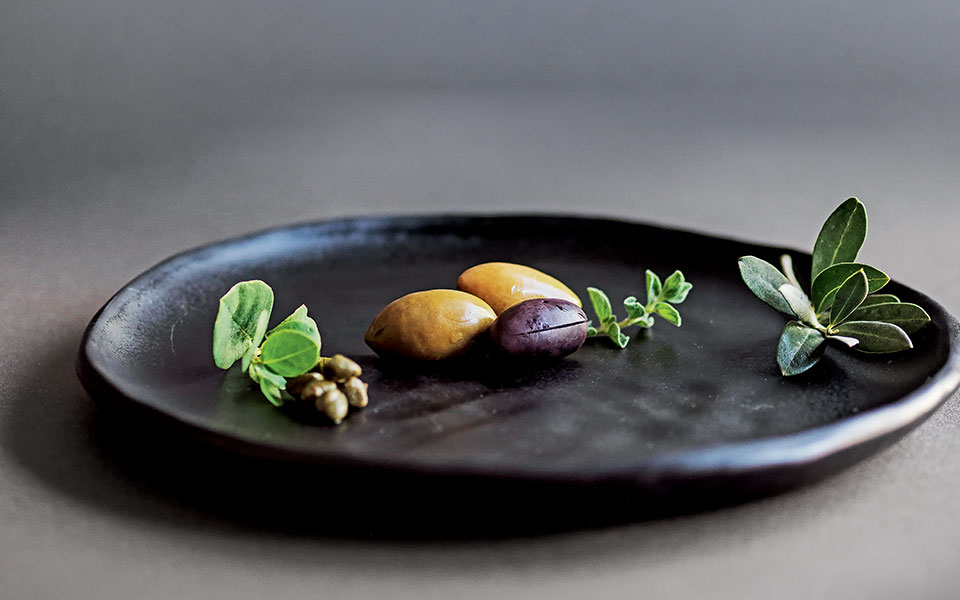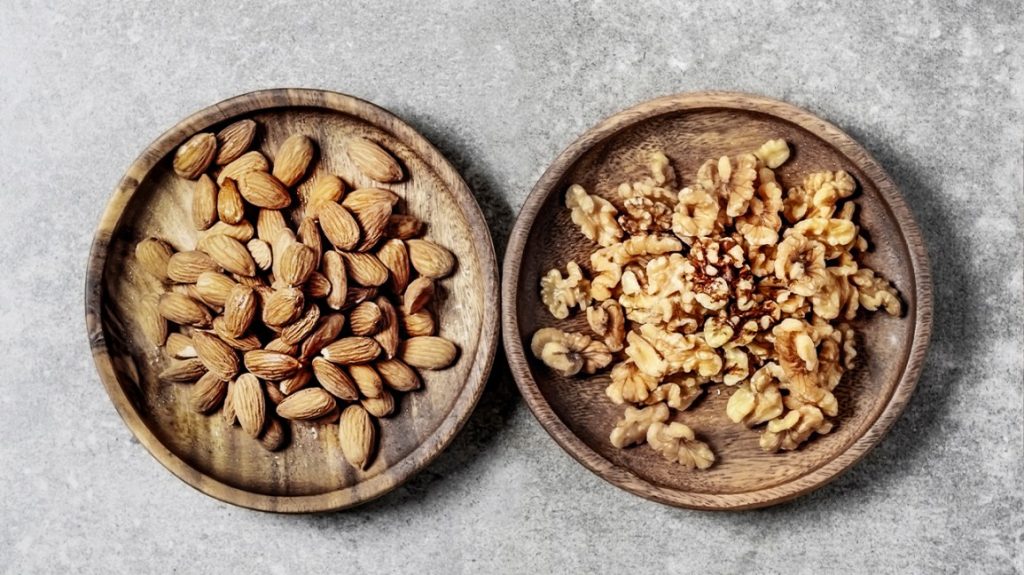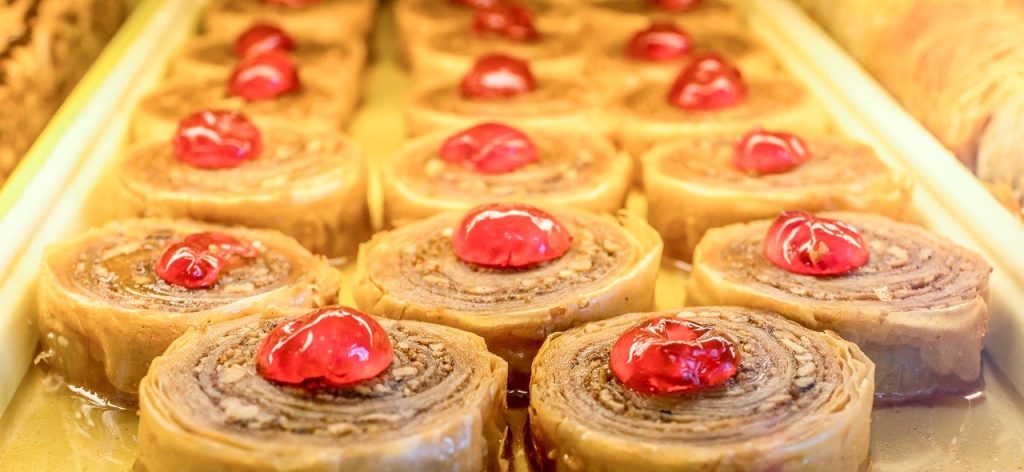Are Peanuts Used In Greek food?

No. Peanuts are not commonly found in Greek cuisine. Due to the high price of peanut oil relative to other oils, almonds and pistachios are more commonly found than peanuts or even peanut oil.
However, there’s a lot to learn about nuts in Greek cuisine.
I’ll show you what nuts to avoid and which are most typically seen in Greek cuisine.
Let’s get this party started.
In Greek cuisine, how frequent are peanuts?

Tree nuts are commonly used in Greek cuisine’s main meals and desserts. As a result, walnuts, almonds, and pistachios are the most commonly utilized nuts in recipes.
This is when the distinction between a peanut allergy and a tree nut allergy becomes clear.
So, if you’re allergic to peanuts, Greek food should be safe. However, if you have a tree nut allergy, you must avoid or be cautious when eating Greek food.
When eating Greek food, it is uncommon to come across peanuts in general. This makes Greece ideal for folks who are allergic to peanuts.
However, it would be best if you aimed to have a letter explaining your allergy in the language of an nation you’ll be visiting with you at all times.
“Horis katholou fistikia I xirous karpous,” you may always inform the waitress. It refers to the absence of any form of nut. Even if you aren’t sensitive to all nuts, it’s recommended to avoid them all. Cross-contamination is avoided this way.
What kind of nuts do Greeks consume?
The most prevalent nuts seen in Greek cuisine are tree nuts. They’re most commonly seen in sweets. The most often used nuts are:
Walnuts\Almonds

Pistachios Fystiki Aegina’s is one of the most well-known pistachios in Greece. They are simply superior to any other pistachio in terms of soil and environment! They are dried in the sun for at least three days.
They’re delicious on their own or in a meal.
While nuts are commonly used in sweets, there are a few ways nuts may be utilized in savory foods as well:
Chestnuts
In Greece, making a turkey for Christmas involves includes chestnuts and rice. Nuts can also be seen in a variety of easter recipes.
Nuts de Pino
The pine nut is standard in traditional recipes. In Greece, pine-nut and rice grape leaves are highly traditional. However, pine nuts may be thrown in as well.
Almonds
A Greek delicacy is stewed almonds! The almonds are selected when still green for this recipe. The stewed onion, tomato, lemon juice, and olive oil are then added. To prepare this delectable meal, follow this recipe!
People who have peanut allergies but can accept other nuts will be OK dining in Greece or Greek restaurants. Simply be informed, careful, and communicate with your server.
With a peanut allergy, certain destinations would be even worse to visit. Such as the Vietnamese, who use peanuts in almost all of their foods and sauces.
Surprisingly, despite the widespread usage of nuts in sweets and celebratory foods, there is no common Greek name for nuts.
Dried fruit, which encompasses anything from walnuts to sesame seeds, is a more frequent term for nuts.
Are peanuts used in Greek desserts?

Desserts should be your primary concern if you’re confronted with a peanut allergy.
However, as we’ve already discussed, peanuts are rarely seen in Greek cuisine, even sweets. Pistachios, almonds, and walnuts are just more widely available.
Galaktoboureko is one meal that should be safe to consume. Semolina custard is cooked in filo and drizzled with syrup in this delicacy. The name means milk burek, which is a fun fact.
Check out this fantastic recipe if you want to make it at home!
I couldn’t discover much of anything when I was looking for a recipe for Greek pastries using peanuts. However, because tree nuts are ubiquitous and may be processed in facilities that also handle peanuts, people with a severe peanut allergy should avoid some of the sweets listed below just to be safe.
Baklava

Baklava is a filo-based sweet pastry filled with chopped nuts. Pistachios, walnuts, and hazelnuts are the most common nuts used. It’s kept together by syrup or honey and sweetened.
You may make your own nut-free versions of this delectable delicacy at home.
Sarai
Sarai is a rolled Baklava, which is a somewhat different kind of Baklava. It’s also frequently composed entirely of walnuts.
Is Greece as allergic to peanuts as the United States?
Peanut allergies are not as common in Greece as they are in the United States.
“2.5 percent of U.S. youngsters may have a peanut allergy,” according to the American College of Allergy, Asthma & Immunology.
In comparison, while Greece is ranked #13 on the list of nations with food allergies (the United States is ranked #6), most of the problems are caused by milk and eggs. In truth, actual statistics on peanut allergies in Greece are difficult. And previous research has tended to put all food-borne allergies together.
In Greece, having a peanut allergy is relatively uncommon. However, this does not imply that they are unaware of peanut or nut sensitivities.
If you travel to a tourist destination, you’ll discover eateries that are pretty accommodating.
You must be cautious, though, as some establishments may not take you seriously. This is sole because allergies are regarded as cold in countries other than the United States.
Seasonal allergies, for example, might cause coughing and sneezing. As a result, people in Greece may be unaware that your allergy can harm you.
As a result, it’s critical to have a card with you that states how severe your allergy is. Make copies of everything and instruct the waiter to deliver them to the kitchen.
Most cooks would gladly ensure that your dish is free of peanuts. Simply skip desserts or limit yourself to desserts that you are already familiar with.
Is peanut oil used in Greek restaurants?

Unlike in the United States or even Mexico, where peanut oil is often used, Greece is not recognized for utilizing it.
The main problem isn’t allergies or flavor; it’s money. Peanut oil is often more expensive than other forms of cooking oil. As a result, you’re unlikely to encounter it at Greek restaurants in Greece or the United States. However, do not hesitate to inquire!
The most popular oils used in most recipes are olive oil and sunflower oil. Sunflower oil is commonly used as an olive oil alternative. Sesame oil, which is often used on bread, may also be found.
Peanut oil is not utilized in any of the sweets. Because Greek food does not contain peanuts, the biggest concern is cross-contamination.
It’s advisable to carry an emergency card with you if you or someone you know has a peanut allergy, as I’ve indicated. Typically, this will specify the severity of your allergy and that you cannot consume any nuts.
This way, there will be no misunderstanding with any of you.
Have I answered all of your questions regarding peanuts in Greek cuisine?
Peanut allergies are extremely dangerous, and you should constantly take precautions to guarantee your safety.
Like I described earlier, make an information card with a photo of peanuts. This way, the waiter and cook won’t be confused about what you’re saying.











